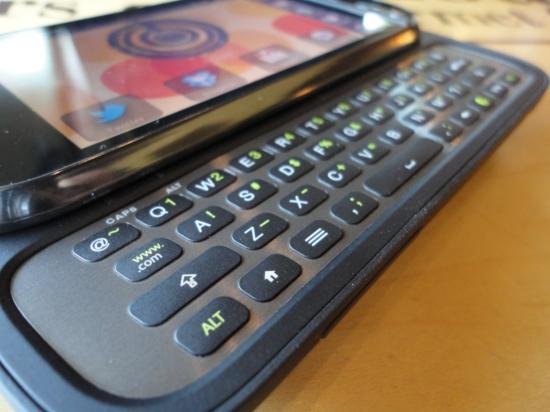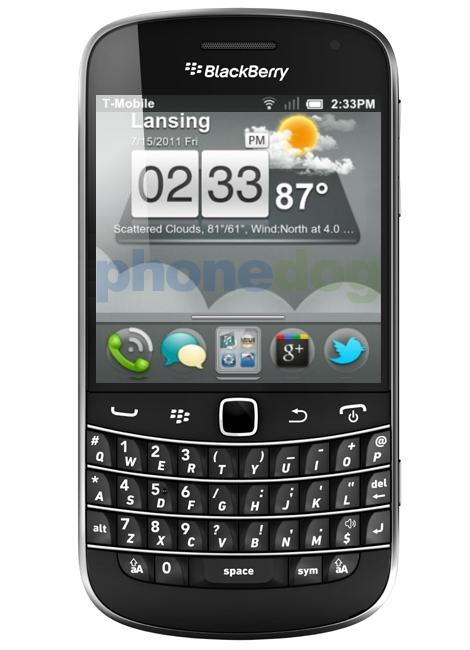
Over the years, physical keyboards have lost their importance in the mobile space. While there is no question about which is easier to type on, mobile displays continue to grow in size and importance. In favor of thinner, lighter phones that are geared more towards media consumption, physical QWERTYs are trending in the opposite direction. What was once a must-have feature in a mobile phone is now something most people rarely think about.
Yesterday, HTC only confirmed what we already knew. The physical keyboard is on its way out ... likely for good.
Our fearless leader, Aaron Baker, met with roughly 20 colleagues in Seattle for HTC's Frequencies conference. There, HTC spoke about some of their latest products and briefly touched on their direction for future devices. During the conference, HTC noted that they are planning to move away from the physical keyboard.
Luckily for those who still enjoy their physical QWERTYs, this doesn't necessarily mean HTC horizontal sliders are gone forever. HTC design guru, Claude Zellweger, said, "I don't think it's [the keyboard] dead...there's a die-hard community around it." However, I think it's safe to say this is one of the final nails in the coffin.
For some time now, there have been fewer and fewer phones sporting keyboards. Some of the most iconic Android handsets to date have sported horizontal slide-out keyboards. The T-Mobile G1 by HTC, for instance, was the first consumer Android device. And the Motorola DROID is regarded as the phone that launched Android into the limelight. (Some say it was the EVO 4G. I say both.) Since then, I can only name a few high profile, high-end devices that have come with a slide-out QWERTY: T-Mobile G2, Samsung Epic 4G, EVO Shift 4G, DROID 2, DROID 3, DROID 4 and the Samsung Captivate Glide. The rest – like the LG Ally or LG Optimus Slider – are far less memorable.
There are even fewer Android devices with portrait, BlackBerry-style QWERTYs. Motorola made the DROID Pro (Verizon) and XPRT (Sprint). And HTC built the Status (ChaCha).
HTC mentioning that they're shifting away from the physical keyboard should come as no surprise. Every manufacturer – even Research In Motion, to an extent – has been shifting away from the hardware QWERTY since the original iPhone. Don't believe me? What about the Storm, Storm 2, Curve 9380, Torch 9850? (BlackBerry London, anyone?) Or look at HTC and Motorola phones circa 2004 and 2005. BlackBerry was in, and so were big, luxurious keyboards. Fast forward just a couple years and only a small percentage of devices come with keyboards.
Personally, I'm glad. I'm happy OEMs are finally starting to shed keyboards.
It feels weird to type that, or even to think it. Just four years ago, I wouldn't dare go without a keyboard. Every smartphone I had owned (which, at the time was about 15 different BlackBerrys) had come with a physical keyboard of some sort. But once I started trying non-BlackBerry keyboards, I quickly learned that I wanted nothing to do with them.
I had the Palm Pre, original DROID, Palm Pre Plus, G2, DROID 3, myTouch 4G Slide, DROID Pro and an EVO Shift 4G for a short while. All of these devices had one thing in common: their physical keyboards were mediocre and paled in comparison to the QWERTYs made by the mobile keyboard kings, Research In Motion.
After all of the devices with slide-out keyboards, I have also realized that I never actually used the keyboards all that much. For one, I don't like using phones in landscape mode too often – there's far less (vertical) real estate to be used in landscape, meaning less information is displayed. And I never took the time to actually slide the keyboard out. It slowed me down and I didn't like the keyboards anyway. There's no point in carrying a phone that's twice as thick as it should be if you're never going to use the keyboard, right?
That said, I still miss physical keyboards, especially all the hotkey shortcuts. And there is no doubt in my mind that there is still a place for them, though that market is quickly waning. But after the myTouch 4G Slide, I came to the conclusion that being a BlackBerry user for so long spoiled me and that I simply do not like landscape keyboards. I probably never will.
Not to mention, I have finally come to grips with touchscreen typing. It took me a little over three years to really get the hang of it. But with the help of enormous displays and third-party keyboard options like SwiftKey (their newest beta is amazing, by the way), I can now type on-screen with just as much ease and speed as I could with my old BlackBerrys.

Will I ever buy a smartphone with a physical keyboard again? I can't say for sure. But if something like the above picture (BlackBerry hardware with a big display, running Android) were to release, I would buy it without hesitation. That said, I'm not holding my breath.
What say you, folks? Do you miss physical keyboards? Are you upset that HTC has admitted to shifting their focus? Or, like me, are you happy to see (non-BlackBerry) keyboards dying out?